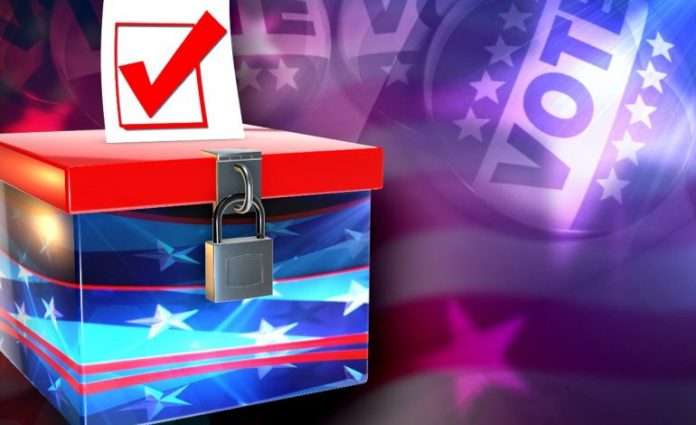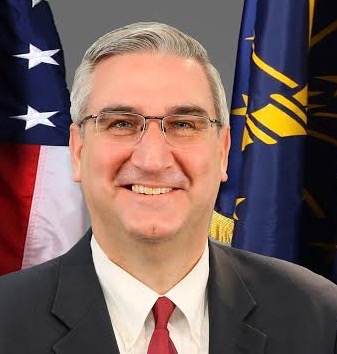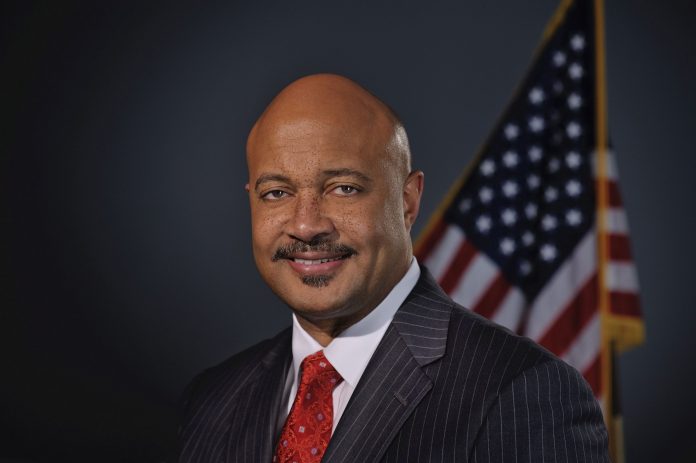St. Vincent Evansville Birth Announcements for April 2019
Nastasia Durham and Isaiah Williams, Evansville, daughter, Iyanna Nyari, March 22
Tristen and Brandon Troxell, Evansville, son, Jaxon Scott, March 24
Angel Hardiman and Zachary Vanmatre, Princeton, IN, son, Keegan Michael Leon, March 24
Aisa and Corey Glienke, Evansville, son, Jaxson Figueroa, March 25
Katelyn and Gabriel Cabrillas, Evansville, daughter, Charlie Marie, March 25
Audra and Casey Reeves, Evansville, daughter, Jypsie Moon, March 26
Kelly and Elijah Hargett, Mount Vernon, IN, son, Hudson Adam, March 26
Alaina and Cody Scott, Madisonville, KY, son, Enzo O’rion, March 26
Lacea Weddle, Evansville, son, Atlas Major Cian, March 26
Elyse and Donald Rumble, Newburgh, daughter, Remy Kay, March 27
Tesla and Jared Blissett, Rockport, IN, daughter, Iris Alexandra, March 28
Dakohta Clark and Zeenen Cobb, Evansville, daughter, Ameliyah El, March 28
VANDERBURGH COUNTY ELECTION BOARD MEETING
VANDERBURGH COUNTY ELECTION BOARD MEETING
 PUBLIC MEETING
Notice is hereby given to the residents of Vanderburgh County that the Vanderburgh County Election Board will hold a public meeting on the below date. This will be the Public Test for Vanderburgh County Voting Equipment
Friday, April 5, 2019
1:00 pm
Meeting Room 216
Civic Center Administration Building
Carla J Hayden Vanderburgh County Clerk
Secretary of Election Board
812-435-5160
Crouch Statement On Bias Crimes Bill Signing
The bill allows a judge to consider at sentencing whether a crime was committed with bias or because of a victim’s “real or perceived characteristic, trait, belief, association or other attribute.†The measure also defines “bias crimes†as a crime against someone based on their color, creed, disability, national origin, race and sexual orientation. These categories are already listed in Indiana’s nearly 20-year-old bias crimes statute.
“By signing this enrolled act into law, we are widening the umbrella of judicial coverage for more Hoosiers. I stand with Governor Holcomb in the calling of protecting all individuals regardless of their color, creed, disability, national origin, race, religion or sexual orientation and allowing a judge to consider at sentencing whether a crime was committed with bias or because of a victim’s real or perceived characteristic, trait, belief, association or other attribute. By adding these descriptions, we are removing Indiana from the list of states that do not have this clarification in statute. I look forward to addressing the needs of our communities so we can continue to take Indiana and the Hoosiers that call it home to the Next Level.”
VANDERBURGH COUNTY FELONY CHARGES
 Evansville, IN – Below are the felony cases to be filed by the Vanderburgh County Prosecutor’s Office today.
Kesha Michelle Henry: Possession of methamphetamine (Level 6 Felony), Possession of marijuana (Class B misdemeanor)
Isaac Clark Weatherall: Domestic battery by means of a deadly weapon (Level 5 Felony), Criminal recklessness (Level 6 Felony), Leaving the scene of an accident with bodily injury (Class A misdemeanor)
Jonathan A. Craig: Burglary (Level 4 Felony), Theft (Level 6 Felony)
Dwayne Michael Rankin: Battery against a public safety official (Level 6 Felony), Resisting law enforcement (Class A misdemeanor), Resisting law enforcement (Class A misdemeanor)
Timothy S. McCandless: Possession of methamphetamine (Level 6 Felony), Possession of paraphernalia (Class A misdemeanor), Disregarding an official traffic control device (C infraction), Driving while suspended (A infraction)
Colton S. Higginbotham: Theft (Level 6 Felony), Possession of marijuana (Class B misdemeanor)
Zachary Alexander Burris: Possession of methamphetamine (Level 6 Felony)
Xena Destiny Roark: Possession of methamphetamine (Level 6 Felony)
Nigel Tyrone Daniels: Domestic battery resulting in bodily injury to a pregnant woman (Level 5 Felony), Intimidation (Level 6 Felony)
Steven Dale Bequeatte: Intimdation (Level 6 Felony)
Troy Dyer Willett: Operating a vehicle as an habitual traffic violator (Level 6 Felony), Operating a vehicle as an habitual traffic violator (Level 6 Felony)
Mary Elizabeth Dausman: Residential entry (Level 6 Felony)
Janet Dubon: Possession of methamphetamine (Level 6 Felony), Possession of marijuana (Class B misdemeanor), Possession of paraphernalia (Class C misdemeanor)
Clarence Carl Johnson Jr.: Domestic battery (Level 5 Felony), Strangulation (Level 6 Felony)
Jasone C. Parsons: Operating a motor vehicle after forfeiture of license for life (Level 5 Felony)
Nicholas Thomas Prince: Possession of a synthetic drug or synthetic drug lookalike substance (Level 6 Felony), Failure to appear (Level 6 Felony)
Michelle Anna Townsend: Possession of methamphetamine (Level 6 Felony)
Larry Lee Shedrick III: Strangulation (Level 6 Felony), Domestic battery (Level 6 Felony), Domestic battery (Level 6 Felony)
Jennifer Nicole Richardson: Domestic battery (Level 6 Felony)
Aces softball series at SIU moved to Friday/Saturday
With rain in the forecast for Carbondale, Ill. this weekend, the University of Evansville and Southern Illinois have altered the weekend schedule.
Game one will now take place on Friday evening at 7 p.m. with Saturday’s doubleheader remaining at noon. There will be no games on Sunday due to the weather forecast.
Evansville and SIU had a game for the ages last season, battling 16 innings before the Salukis finished with a 1-0 win in the series opener at Cooper Stadium. UE starter Morgan Florey and SIU pitcher Brianna Jones went the distance, combing to strike out an NCAA record 46 batters.
Gov. Holcomb Public Schedule for April 4
Below find Gov. Eric J. Holcomb’s public schedule for April 4, 2019.
Thursday, April 4: Innovate WithIn Finals
WHO:Â Â Â Â Â Â Â Â Â Â Â Â Â Gov. Holcomb
Indiana Commissioner for Higher Education Teresa Lubbers
IEDC President Elaine Bedel
WHAT:Â Â Â Â Â Â Â Â Â Â Â The governor will give remarks.
WHEN:Â Â Â Â Â Â Â Â Â Â Â 10 a.m., Thursday, April 4
WHERE:Â Â Â Â Â Â Â Â Â The Center at The Heritage Group
The Quarry Room, First Floor
6320 Intech Blvd.
Indianapolis, IN 46278
HOT JOBS IN EVANSVILLE
|
||||||
|
||||||
|
||||||
|
||||||
|
||||||
|
||||||
|
||||||
|
||||||
|
||||||
|
||||||
|
||||||
|
||||||
|
||||||
|
||||||
|
||||||
|
||||||
|
||||||
|
||||||
|
||||||
|
||||||
|
||||||
|
||||||
|
||||||
|
||||||
|
||||||
|
||||||
|
||||||
|
||||||
|
||||||
|
||||||
|
||||||
|
||||||
|
||||||
|
||||||
|
||||||
|
||||||
|
||||||
|
||||||
|
||||||
|
AG Hill: Argument for ethics hearing panel ‘fatally flawed’
Marilyn Odendahl for www.theindianalawyer.com
Andrew Klein, who has led the Indiana University Robert H. McKinney School of Law since July 2013, has announced he will be stepping down as dean in June of 2020. He confirmed his decision in a recent email to faculty members, saying he considered it a “privilege to work with each and every one of you.â€
After a leave of absence during the 2020-2021 academic year, Klein plans to return to the law school as a classroom teacher and scholar. He has taught courses on environmental and toxic torts, hazardous waste regulation and federal jurisdiction.
“One thing I’ve never tried to hide is the fact I enjoy being in the classroom,†Klein told Indiana Lawyer in 2013. “It is a privilege and tremendous opportunity to introduce students to this wonderful profession.â€
Klein joined the faculty at the Indianapolis law school as a tenure-track professor in 2000 and four years later stepped into administration, becoming an associate dean for academic affairs. From 2010 to 2013, he took on a campus-wide leadership position when he served as chief of staff to the Office of the Chancellor and Associate Vice Chancellor for Academic Affairs at IUPUI.
The end of his tenure as dean will coincide with the conclusion of Indiana University’s Bicentennial Campaign in June 2020.
IUPUI Chancellor Nasser Paydar will form a committee to search for the law school’s next dean in the summer, according to Klein. Then, during the fall, the campus will commence a national search.
Read more about the transition in leadership at IU McKinney School of Law in the April 17 issue of Indiana Lawyer.
AG Hill: Argument for ethics hearing panel ‘fatally flawed’
Olivia Covington for www.theindianalawyer.com
The briefing battle between Indiana Attorney General Curtis Hill and the Supreme Court Disciplinary Commission has continued this week, with Hill arguing in new court filings that the commission’s attempts to convince the Supreme Court to proceed with the case consist of bootstrapping, red herrings and fatal flaws.
Currently at issue in In the Matter of: Curtis T. Hill, Jr., 19S-DI-156, is whether the Supreme Court should appoint a hearing officer or three-person panel to preside over disciplinary proceedings arising from claims of sexual misconduct against Hill.
In response to allegations that Hill groped four women at a legislative party in March 2018, the Disciplinary Commission filed a formal disciplinary complaint against the AG last month, alleging his conduct constituted Class B misdemeanor battery and Level 6 felony sexual battery. As a result, the commission argues, Hill violated Indiana Rules of Professional Conduct 8.4(b) and (d) and Admission and Discipline Rule 22.
Generally in attorney discipline cases, the Supreme Court vests hearing officers with the power to oversee pre-trial discovery, preside over public hearings and make findings of fact to submit to the justices, who make the final decision on sanctions. Here, the commission moved to appoint a three-master hearing panel, a step usually only taken in judicial discipline cases.
Hill opposed that motion, and in response the commission claimed in a Friday filing that there is ample caselaw that supports attorney discipline even if the attorney has not been criminally charged or is acquitted. In Hill’s case, a special prosecutor declined to file criminal charges, believing he could not prove the intent element of battery, while the inspector general found no state ethical violations. But both Daniel Sigler and Lori Torres, the special prosecutor and inspector general, respectively, said they believed Hill’s accusers.
In a response filed late Tuesday afternoon, Hill and his attorney Donald Lundberg, the former director of the Disciplinary Commission, hit back at the commission’s argument, claiming the judicial branch does not have the power to discipline Hill — an elected member of the executive branch — for uncharged criminal conduct. Such a proceeding, they argued, would be an affront to the disciplinary process and would interfere with the doctrine of separation of powers.
“In this case, the Court’s exercise of discretion should be informed by the fundamental policy considerations that undergird the lawyer discipline system,†Hill and Lundberg wrote. “One of those considerations is that the lawyer discipline system is not an appropriate tool for addressing the perceived ills of society-at-large by trumping the decisions of other officials who are authorized by law to make decisions that fall squarely within their realm and that do not relate directly to the practice of law.â€
Turning first to the allegations under Rule 8.4(b) — which concerns attorney fitness — Hill argues there is no nexus between his alleged misconduct and his fitness to practice law. He cited extensively to Matter of Mears, 723 N.E.2d 873 (Ind. 2000), which the commission also cited to support its position.
In Mears, a former judge was acquitted on charges of ghost employment, but the Disciplinary Commission still brought charges. In rendering its decision, the Mears court held that, “Acquittal on criminal charges does not prohibit the filing of professional misconduct charges.â€
“However, as the Commission fails to mention, the Commission respected the criminal system’s determination of reasonable doubt and did not charge Mears with violating Rule 8.4(b),†Hill wrote. “Viewed in that setting, the Court did not mean to say that acquittal on criminal charges does not prohibit the Commission from charging a lawyer with violating Rule 8.4(b) for engaging in the criminal conduct of which the lawyer was acquitted.â€
Claiming the commission “cherry-picked†language from disciplinary decisions it believed would support its position, Hill rejected the argument that he could be disciplined under 8.4(b) because his alleged conduct reflected adversely on the practice of law and on his office.
story continues below
“This Court has never held that negative public perception is alone enough to provide the nexus with fitness to practice law,†he wrote. “If that were the case, any time the public reacted negatively to any crime committed by a lawyer — even a crime this Court has clearly held does not reflect adversely on fitness to practice law — the lawyer would be subject to professional discipline.â€
Hill and Lundberg also took aim at the commission’s contention that Sigler misapplied the “intent†element of battery when declining to press charges. Commission attorneys argued that “battery requires that the actor merely has knowledge that he is engaged in the conduct and does not require ‘intent’ of harm.â€
“This utterly disregards the express statutory requirement that an essential element of battery is that a touching be done in a rude, insolent or angry manner,†Hill responded. “The Commission’s focus on required proof of intending harm is a red herring.â€
What’s more, Hill said, “(t)he Commission’s analysis of Respondent’s alleged criminal conduct is so fatally flawed that the Court should disavow its position and defer to the experienced special prosecutor’s correct conclusion that there is no viable basis in fact or law to claim the Respondent engaged in criminal conduct.â€
Hill and Lundberg also briefly addressed the charge of a violation of Rule 8.4(d), which concerns prejudice to the administration of justice. Considering Hill argues he did not engage in criminal conduct “even on the facts as alleged,†his motion maintains that he cannot have prejudiced the administration of justice.
“The Commission’s argument that Rule 8.4(d) applies on these facts is has (sic) no merit,†he wrote. “… (T)he Commission’s argument is blatant bootstrapping.â€
Finally, turning to the charge of “offensive personality†under Admission and Discipline Rule 22, the Oath of Attorneys, Hill said the Supreme Court has never fully addressed whether lawyers can be disciplined for violating the oath, and such discipline should not be permissible.
“Lawyers don’t wake up in the morning and take the oath every day before they go to work,†Hill and Lundberg wrote, calling the oath a “statement of aspiration.†“But they do wake up every day subject to the standards set out in the Rules of Professional Conduct. If a lawyer violates one of those appropriate professional discipline is a possibility.â€
“In filing his motion, the Respondent does not suggest and does not mean to suggest that the Court could consider the decision to appoint a hearing officer as being anything other than routine in run-of-mill lawyer discipline cases,†Hill concluded. “What he suggests is that this is an exceptional case where an arm of the judicial branch of government proposes to use the power of that branch to punish an elected official in a separate and independent branch of government merely because it disapproves of alleged conduct the Respondent engaged in outside of his duties as an elected official and outside his role as an Indiana lawyer.â€
Thus, Hill reiterated his request to decline the appointment of a hearing officer or panel in his case.
It’s unclear how the case might proceed if a hearing officer or panel weren’t appointed. Ethics attorneys say they have never seen that situation occur, but some suggest the case could go directly before the justices for adjudication.




